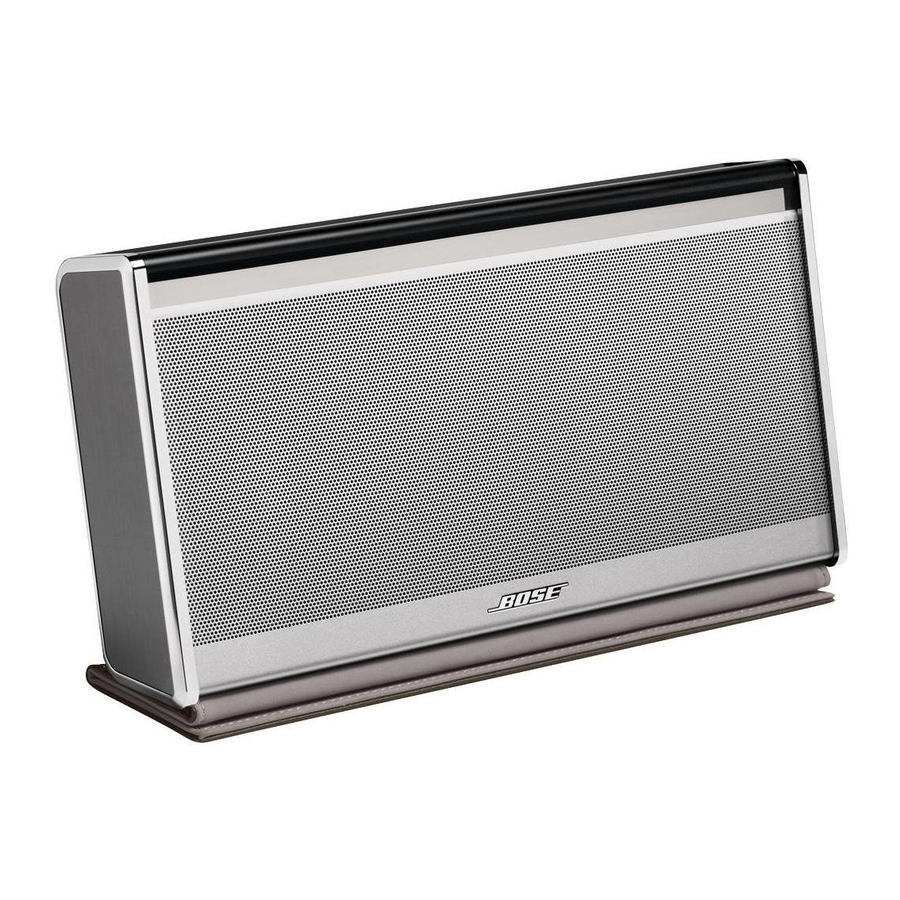Bose SoundLink Wireless Music System Instrukcja obsługi - Strona 3
Przeglądaj online lub pobierz pdf Instrukcja obsługi dla Głośniki Bose SoundLink Wireless Music System. Bose SoundLink Wireless Music System 22 stron. Car charger
Również dla Bose SoundLink Wireless Music System: Instrukcja obsługi (32 strony), Instrukcja obsługi (21 strony), Podręcznik szybkiej konfiguracji (2 strony), Instrukcja obsługi (24 strony), Instrukcja wymiany (2 strony), Instrukcja obsługi (15 strony), Instrukcja obsługi (12 strony), Instrukcja obsługi (24 strony), Instrukcja obsługi (33 strony), Instrukcja obsługi (24 strony), Instrukcja obsługi (40 strony), Instrukcja obsługi (16 strony), Instrukcja obsługi (18 strony), Instrukcja obsługi (24 strony), Skrócona instrukcja obsługi (2 strony), Instrukcja obsługi (22 strony), Skrócona instrukcja obsługi (2 strony), Instrukcja obsługi (16 strony), Instrukcja obsługi (16 strony), Instrukcja wymiany baterii (2 strony), Podręcznik użytkownika (2 strony), Skrócona instrukcja obsługi (2 strony), Instrukcja obsługi (19 strony), Instrukcja obsługi (31 strony), Jak (5 strony), Instrukcja obsługi (2 strony), (Angielski) Podręcznik użytkownika (26 strony), (Japoński) Instrukcja obsługi (3 strony)

